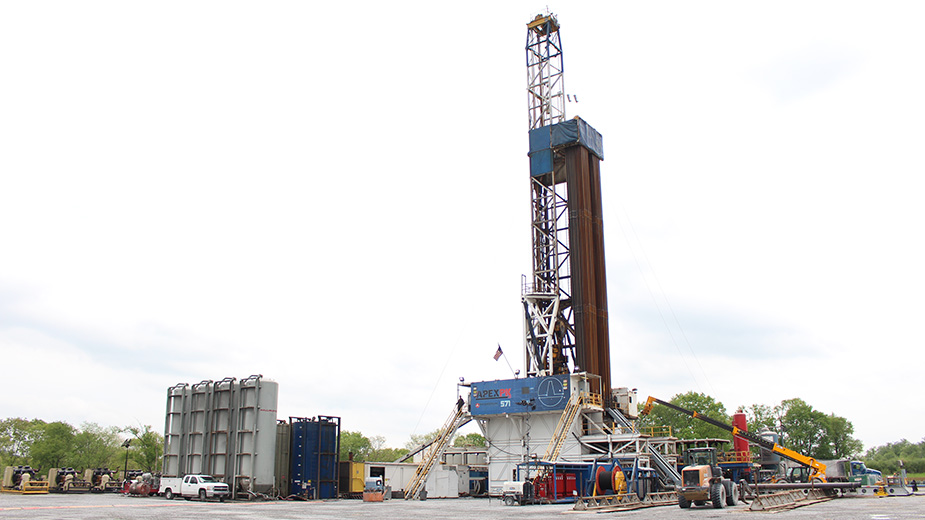Frack Activists Mark 5th Anniversary of 4.0 Quake
COITSVILLE, Ohio – About 10 people – including supporters of the group Frackfree America National Coalition — joined Thursday to commemorate the fifth anniversary of the New Year’s Eve earthquake that they say served as a wake-up call to the dangers wastewater injection wells pose.
On Dec. 31, 2011, a 4.0 magnitude earthquake shook the Mahoning Valley. It was traced to the operations of the Northstar #1 injection well in Youngstown.
Regulators found that the owner of the well, D&L Energy Inc., had injected wastewater into the basement rock and disrupted a fault line.
“We’re worried about all of them,” said Jane Spies, a member of the Frackfree coalition, of injection wells across Ohio.
The small group held their observance in front of the Coitsville Township Administration building along McCartney Road, less than a mile from an injection well whose owners have expressed interest in operating again.
Spies noted that the Coitsville well – known as the Collins #6 well – was once owned by D&L and the Ohio Department of Natural Resources revoked its permit after it was satisfied that the company acted irresponsibly. However, the permit was transferred to another company after D&L declared bankruptcy in 2013.
“I don’t believe you can regulate injection wells,” she said. “Even if they’re small earthquakes, they can be harbingers of larger earthquakes.”
She drew parallels between what has occurred in the Mahoning Valley to the rash of earthquakes that have plagued Oklahoma. An injection well in that state has been linked to a 5.8-magnitude earthquake that struck near the city of Pawnee in September.
The objective of the anniversary gatherings is to raise public awareness of the dangers these wells pose to the community, Spies said.
The Rev. Monica Beasley-Martin opened the short ceremony with a prayer and a plea that government officials be “give[n] ears so they can hear clearly what you are saying.”
Just recently, ODNR gave the go-ahead for a well in Vienna Township near the Youngstown-Warren Regional Airport to begin wastewater injection.
“We’re in danger,” Spies said. “I don’t think our geology is suitable.”
Class II injection wells are used to store wastewater generated from hydraulic fracturing and drilling operations – mostly from out-of-state well sites. Activists are concerned that the wastewater could leak into aquifers or lead to accidental spills because of inadequate safety measures at these wells.
Vienna Township Trustee Phil Pegg said that the safety of the community comes first, hence injection wells must be governed by stricter regulations.
In June 2015, the Trumbull County Township Association endorsed a measure that called for tougher state guidelines regarding the operation of injection wells. Trumbull County Commissioners approved supporting the changes, but Mahoning County commissioners did not.
“We wanted to ensure the safety of these injection wells,” Pegg said.
The safety measures call for traffic impact studies, extending the public comment period to 28 days from 15, increasing the lists of those sent notices of new drilling to include local government officials and school districts within six miles, limiting a well’s hours of operation, and hearings to consider opposition to new well permits.
However, ODNR and not local officials set regulations regarding injection wells and oil and gas drilling.
“When they frack a well, there’s intense truck traffic and activity for four to six months,” Pegg said. “In an injection well, the activity never stops. It’s 24/7 and it really affects the community. There’s traffic concerns. There’s pollution concerns. And all those things that go with it.”
RELATED:
Dec. 28, 2016: Judge Clears Path for Injection Well to Reopen
Pictured: Tom Martin, Leonard Grbinick, Maria Montanez protest outside the Coitsville Township administration building.
Copyright 2024 The Business Journal, Youngstown, Ohio.

